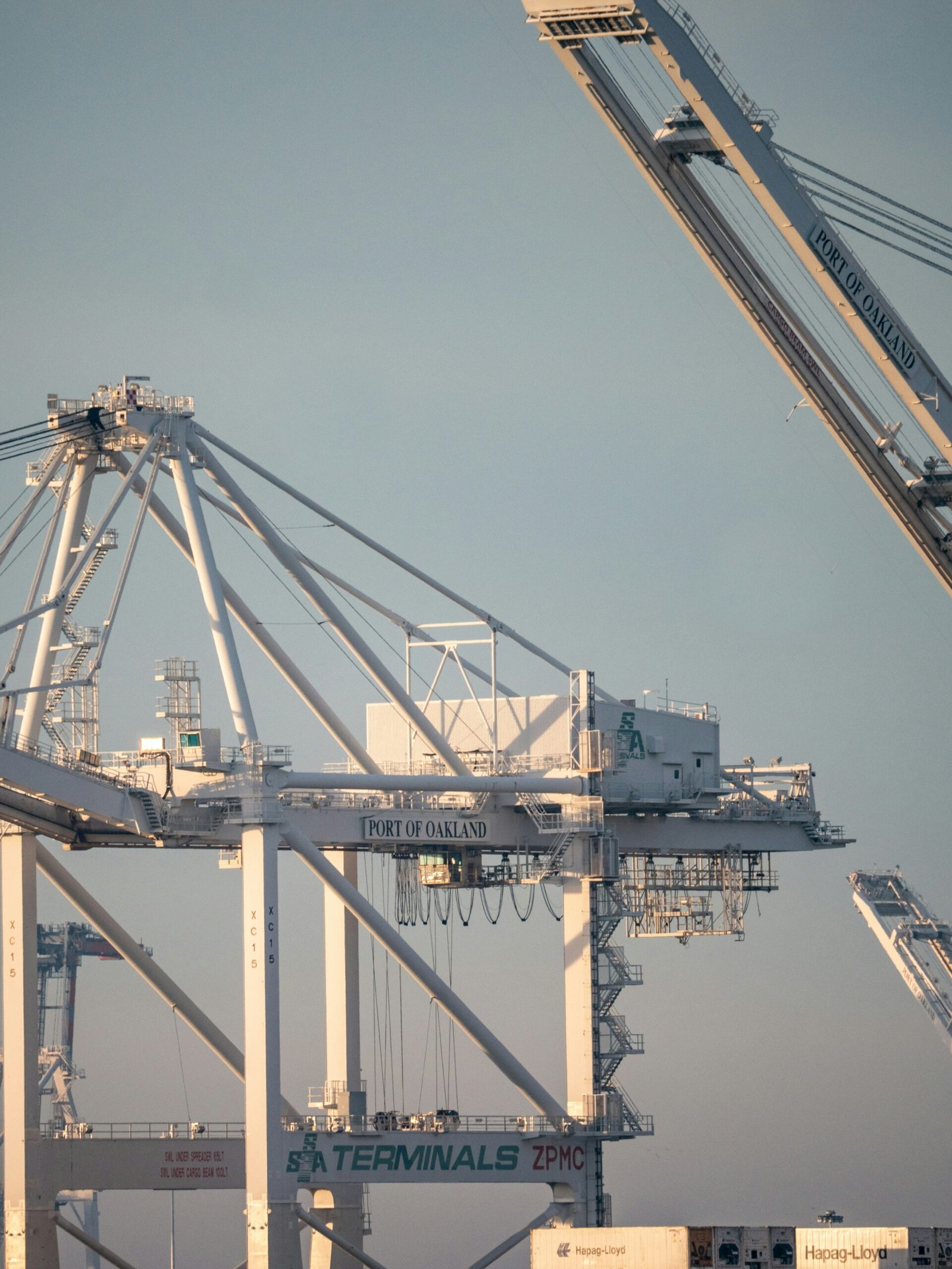
Introduction to Blockchain and Supply Chain Management
Blockchain is a transformative technology that has gained significant attention across various sectors, particularly in supply chain management. At its core, blockchain is a decentralized digital ledger that enables secure and transparent recording of transactions. Each block in the chain contains a number of transactions, and once added, it cannot be altered without consensus from the network, ensuring immutability. This intrinsic feature bolsters trust among parties involved, as it provides a verifiable way to track transactions and changes. Furthermore, the decentralized nature of blockchain means that it does not rely on a single point of authority, thereby enhancing its resilience against fraud and data manipulation.
Supply chain management refers to the comprehensive oversight of the flow of goods and services, encompassing all processes that transform raw materials into final products. It plays a crucial role in various industries, as it optimizes operations, enhances customer satisfaction, and ultimately drives profitability. However, supply chain management faces persistent challenges. Many supply chains suffer from a lack of transparency, where stakeholders often grapple with limited information regarding the sourcing, production, and transportation of goods. This opacity can lead to inefficiencies, delays, and increased costs. Additionally, issues such as counterfeit products and compliance with regulations further complicate supply chain operations.
By integrating blockchain technology into supply chain management, many of these challenges can be addressed effectively. The transparency provided by blockchain allows all stakeholders to access real-time information, thus fostering accountability and reducing disputes. Consequently, businesses can enhance their operational efficiency, build stronger relationships with partners, and offer better service to customers. As we delve deeper into this blog post, we will explore how blockchain is not only addressing the challenges of supply chains but also reshaping their future by establishing a new paradigm of trust and security.
The Need for Transformation in Supply Chains
Traditional supply chains have long been marked by complexities that hinder efficiency and transparency. Manual processes dominate many systems, leading to inconsistencies and the increased likelihood of human error. These inefficiencies not only drain resources but also slow down operations, causing delays that can have a cascading effect throughout the supply chain. Companies often find themselves struggling to meet customer demands due to these bottlenecks, which can ultimately affect profitability and market competitiveness.
Furthermore, a lack of visibility within these supply chains creates a significant challenge. Stakeholders often operate with fragmented information, which makes it difficult to track products and monitor their journey from production to delivery. This obscured visibility can lead to substantial delays, as organizations scramble to gather data from various sources to identify issues. In environments where time is of the essence, this can severely compromise operational efficiency.
Fraud risks also loom large within traditional supply chain frameworks. With multiple parties involved, each handling critical records, the opportunity for discrepancies and malfeasance increases. Fraudulent activities can not only result in financial losses but can also damage brand reputation and consumer trust, which are invaluable in today’s marketplace.
Moreover, the challenges associated with data sharing among multiple parties pose a significant barrier to collaboration. Traditional methods may not facilitate the seamless exchange of information, leading to silos that inhibit performance. With organizations increasingly oriented toward collaboration and integrated operations, a transformative solution is essential. As such, there is a pressing need for advanced technologies that can enhance transparency and accountability, fundamentally rethinking how supply chains can be managed. The advent of innovative solutions like blockchain holds the promise of overcoming these challenges, offering a new paradigm for supply chain optimization.
Key Features of Blockchain that Benefit Supply Chains
Blockchain technology offers several key features that significantly enhance the management of supply chains. One of the most remarkable attributes is decentralized data storage. Unlike traditional centralized systems, which can hinder transparency and become points of failure, blockchain allows for data to be stored across a distributed network of nodes. This decentralization ensures that all participants in the supply chain have access to the same real-time information, fostering transparency and accountability among stakeholders.
Real-time tracking capabilities are another critical benefit of blockchain in supply chain management. By leveraging this technology, companies can monitor the movement of goods from origin to destination seamlessly. Each transaction is recorded on the blockchain, creating an immutable ledger that verifies the history of a product as it traverses various points in the supply chain. This level of traceability not only enhances operational efficiency but also helps in mitigating risks associated with delays, fraud, or product recalls.
Enhanced security through cryptographic measures is yet another compelling feature of blockchain technology. Each transaction on a blockchain is encrypted and linked to the previous block, making it incredibly difficult for malicious actors to alter data. This foray into advanced security protocols ensures that sensitive information regarding the supply chain is protected from unauthorized access, thereby maintaining the integrity of the data shared among partners.
Finally, the capacity to create smart contracts revolutionizes how agreements and transactions are executed within supply chains. Smart contracts automatically execute predefined terms when pre-configured conditions are met, eliminating the need for intermediary parties and reducing transaction costs. This not only streamlines processes but also enhances trust among participants, thereby contributing to a more fluid and efficient supply chain ecosystem.
Real-World Applications of Blockchain in Supply Chain Management
Blockchain technology has begun to make significant strides in supply chain management across various industries, providing enhanced traceability, improved efficiency, and reduced instances of fraud. One of the most notable applications can be seen in the food and beverage sector. For instance, the multinational corporation Walmart has partnered with IBM to deploy blockchain for tracking food products from farm to shelf. By utilizing this decentralized ledger technology, Walmart can efficiently trace the origin of food items, thereby significantly reducing the time it takes to pinpoint the source of contamination during food safety crises. This increased transparency not only facilitates quicker responses but also enhances consumer trust.
In the pharmaceuticals industry, the implementation of blockchain has proven invaluable in combating counterfeit drugs. The MediLedger Project, a collaboration between various stakeholders, enables pharmaceutical companies to track drug shipments securely. By maintaining a shared, immutable record of transactions, stakeholders can verify the authenticity of drug products at any point in the supply chain. This system offers a robust solution to ensure compliance with regulations and safeguard public health, showcasing the potential of blockchain technology in addressing critical industry challenges.
The luxury goods market is another sector where blockchain has made a significant impact. Companies like LVMH have launched initiatives utilizing blockchain to assure customers of product authenticity. By providing a digital certificate of authenticity derived from blockchain, consumers can ascertain the provenance of luxury items, reducing the risk of counterfeit goods. This application not only preserves brand reputation but also strengthens customer loyalty through enhanced transparency.
Overall, these real-world applications of blockchain in supply chain management illustrate its transformative potential. Through improved traceability, reduction in fraud, and operational efficiency, businesses across various sectors are leveraging blockchain technology to adapt to the demands of a modern marketplace. The ongoing evolution of this technology promises further advancements and adoption, paving the way for a more transparent and reliable supply chain ecosystem.
Addressing Challenges and Limitations of Blockchain in Supply Chains
The implementation of blockchain technology in supply chain management is not without its challenges and limitations. One significant hurdle is scalability. As supply chains grow more complex, the volume of transactions can become enormous, potentially overwhelming the capacity of existing blockchain networks. Many traditional blockchain systems can struggle to process large quantities of transactions efficiently, resulting in delays and increased costs. This challenge necessitates the exploration of blockchain solutions designed specifically to enhance transaction speed and throughput.
Another critical challenge is interoperability with existing systems. Supply chains often involve multiple stakeholders utilizing diverse platforms, databases, and technologies. For blockchain to succeed, it must seamlessly integrate with these systems to facilitate data exchange and maintain consistent information across the supply chain. Achieving compatibility among various technologies requires robust middleware solutions and possibly the development of standardized protocols that can accommodate different systems.
The complexity of setting up blockchain networks cannot be overlooked. It involves intricate coordination among participants, substantial initial investment, and the need for technical expertise. Companies may face resistance from employees accustomed to traditional practices or a lack of understanding of how blockchain operates. Successful implementation requires comprehensive training and change management strategies to ensure stakeholder buy-in and ease the transition to a blockchain-based environment.
Regulatory concerns also pose significant barriers. Current laws and regulations may not adequately cover blockchain transactions, leading to uncertainties regarding compliance. Navigating the legal landscape requires careful consideration, as a lack of clear guidelines can deter businesses from adopting blockchain solutions. Stakeholders in the supply chain must work collaboratively with regulators to establish laws that support the use of blockchain while ensuring compliance and fostering innovation.
To address these obstacles, stakeholders can engage in collaborative pilot projects that explore various approaches to scalability, integration, and regulation, ultimately paving the way for a more transparent supply chain using blockchain technology.
The Role of Collaboration in Blockchain Supply Chains
Collaboration among stakeholders is pivotal to the successful implementation of blockchain technology in supply chain management. The intricacies of modern supply chains necessitate the integration of diverse parties, including suppliers, manufacturers, distributors, and retailers. Each participant holds a unique perspective and piece of information that can contribute to the overall efficiency and transparency of the blockchain ecosystem. Effective collaboration fosters an environment that encourages information sharing, which is essential when utilizing blockchain to create a unified ledger that all parties can trust.
Establishing partnerships across the supply chain is fundamental. When stakeholders work together towards shared goals, they can identify opportunities for improvement and innovation. For instance, suppliers can collaborate with manufacturers to ensure raw materials are tracked from origin to production, thus enhancing traceability. This level of cooperation directly addresses one of the critical advantages of blockchain—the ability to provide a single source of truth. When all stakeholders align on standards and procedures, the reliability of the data recorded on the blockchain is significantly enhanced. Crafting agreements on data sharing protocols not only improves transparency but also reduces the risk of fraud, errors, and disputes.
Furthermore, aligning on technological standards promotes interoperability among different blockchain systems. This collaboration allows participants to seamlessly share data across various platforms, bolstering the overall integrity of the supply chain. As businesses increasingly recognize the benefits of blockchain in enhancing operational effectiveness, those that prioritize collaboration will likely experience a competitive advantage. In conclusion, the synergy among stakeholders holds the key to unlocking the full potential of blockchain in supply chains, ensuring a more streamlined and transparent process that can adapt to evolving market demands.
Future Trends: What’s Next for Blockchain in Supply Chain Management?
The advent of blockchain technology has already started to reshape the landscape of supply chain management, and the future holds even greater promise. Emerging trends indicate that the integration of blockchain with Internet of Things (IoT) devices will be pivotal in establishing comprehensive real-time data collection systems. This synergy will enable stakeholders to monitor the movement of goods more effectively, providing immediate visibility into supply chain operations. IoT sensors can capture critical data points such as temperature, humidity, and location, which can then be securely recorded on the blockchain. This promotes greater accountability and enhances the ability to respond rapidly to any irregularities.
Furthermore, artificial intelligence (AI) is set to play a crucial role in analyzing the vast amounts of data generated by blockchain networks. As these decentralized ledgers accumulate more information, AI algorithms can leverage advanced analytics to provide actionable insights. Such insights can improve decision-making processes related to inventory management, demand forecasting, and risk mitigation. By utilizing AI to sift through blockchain data, companies can gain a competitive edge, ensuring efficient operations while minimizing waste and inefficiencies.
In addition to IoT and AI, the use of digital identities on blockchain is emerging as a means to enhance security and compliance in supply chains. Creating unique digital identities for both products and suppliers can simplify the verification processes, ensuring that all entities in the supply chain are legitimate. This not only boosts trust but also streamlines transaction processes, thereby expediting the overall supply chain lifecycle.
Looking ahead, it is anticipated that these technologies will intertwine further, paving the way for greater innovation. The convergence of blockchain, IoT, and AI will likely result in a more interconnected and resilient supply chain framework, one that is capable of adapting to emerging challenges and demands.
Conclusion: Embracing Blockchain for Supply Chain Innovation
In recent years, the emergence of blockchain technology has introduced a revolutionary approach to supply chain management. This digital innovation provides an unprecedented level of transparency, efficiency, and accountability across various stages of the supply chain process. By leveraging the decentralized nature of blockchain, businesses can foster trust among stakeholders, ensuring that each transaction is accurately recorded and easily accessible. This shift not only enhances operational efficiency but also minimizes the risks associated with fraud, theft, and errors.
The integration of blockchain into supply chain management enables real-time tracking of goods, facilitating a seamless flow of information from producers to consumers. This degree of visibility empowers organizations to respond swiftly to disruptions, streamline processes, and make informed decisions based on accurate data. Furthermore, the immutable nature of blockchain records helps in verifying the provenance of products, leading to improved compliance, reduced counterfeiting, and enhanced brand loyalty.
As companies begin to understand the multifaceted benefits of blockchain, it is crucial for them to explore its applications within their operations actively. By embracing this transformative technology, organizations can not only enhance their current supply chain practices but also innovate new business models that prioritize sustainability and ethical sourcing. In today’s competitive landscape, staying ahead necessitates a willingness to adapt to technological advancements, and blockchain is at the forefront of this evolution.
In conclusion, the adoption of blockchain technology represents a significant opportunity for businesses to redefine their supply chain strategies. By prioritizing collaboration and transparency, companies can pave the way for a more resilient and innovative supply chain ecosystem. The journey towards blockchain integration may present challenges, yet the potential rewards, in terms of trust and operational effectiveness, are substantial and merit serious consideration.
Call to Action: Taking the First Steps Towards Blockchain Implementation
As businesses explore the potential of blockchain technology in supply chain management, taking the first steps towards its implementation is crucial. The journey begins with a comprehensive feasibility study to assess whether blockchain is indeed the right fit for the organization’s specific needs. This initial assessment should evaluate existing processes, identify potential inefficiencies, and explore how blockchain can address these issues effectively. It is essential to consider factors such as cost, scalability, and integration with current systems at this stage.
Engaging stakeholders is a vital next step. This includes not only internal team members but also external partners, suppliers, and customers who may be affected by the integration of blockchain technology. By fostering open communication, organizations can gain insights into the concerns and expectations of those involved, which will facilitate smoother implementation. Stakeholder engagement ensures that the adopted solutions reflect the collaborative effort required in a successful supply chain.
Identifying specific use cases where blockchain can add tangible value is also essential. For example, areas such as traceability, inventory management, or transaction security are often ripe for disruption through blockchain integration. Conducting workshops and brainstorming sessions can help stakeholders visualize how blockchain could reshape these processes. As part of this identification, it may be beneficial to analyze successful case studies to understand best practices and potential pitfalls.
To start small, organizations should consider beginning pilot projects. These projects can help test the waters and validate assumptions regarding blockchain’s impact on the supply chain. By carefully selecting manageable pilot scenarios, businesses can gather valuable data and insights that support further scaling of blockchain solutions. Lastly, it is advisable to seek resources for further exploration, such as industry reports, online courses, or blockchain consortia, which can provide additional insights and guidance on this transformative technology.

